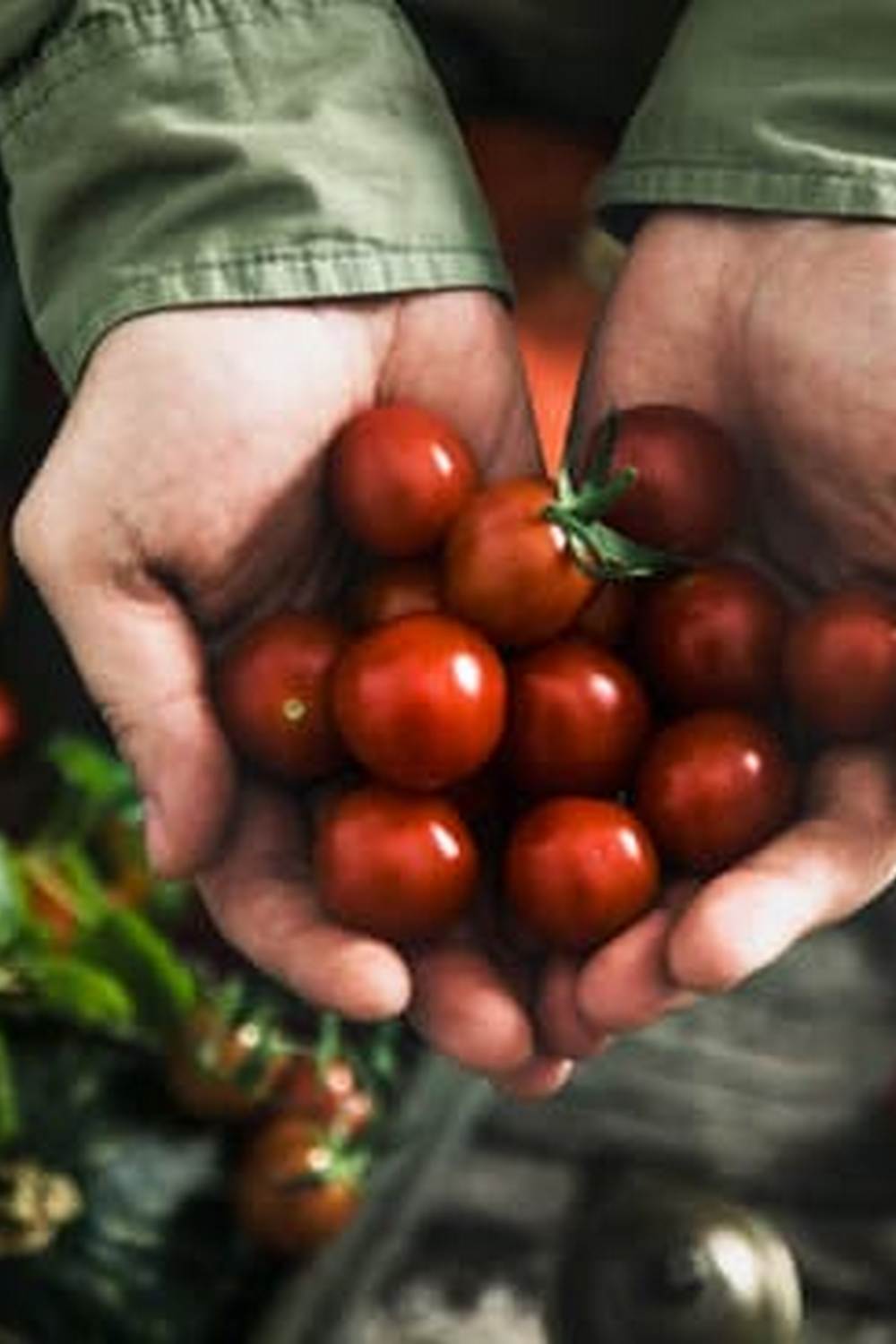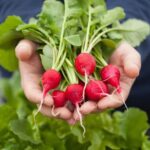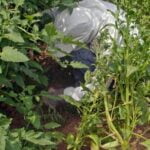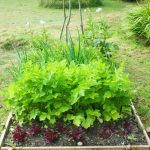Are you interested in growing your own vegetables in the sunny and warm environment of South Florida? Container vegetable gardening is a great option for those with limited space or poor soil conditions. In this article, we will explore everything you need to know about starting a thriving container vegetable garden in South Florida, from choosing the right containers to selecting the best vegetables and expert tips for success.
When it comes to container vegetable gardening in South Florida, there are unique challenges and considerations to keep in mind. With the right knowledge and techniques, you can still enjoy a bountiful harvest of fresh produce right in your own backyard or balcony. Whether you are a seasoned gardener or just starting out, this comprehensive guide will provide you with all the information you need to get started and maintain a successful container garden in South Florida.
From addressing soil and fertilizer needs to pest and disease control, we will cover it all. By the end of this article, you will be equipped with the knowledge and practical tips needed to create a thriving container vegetable garden in South Florida. So let’s dive into the world of container gardening and unlock the potential for growing your favorite vegetables right at home.
Best Vegetables to Grow in South Florida Containers
When it comes to container vegetable gardening in South Florida, choosing the right vegetables to grow is essential for a successful harvest. The warm and humid climate of South Florida creates unique growing conditions, and not all vegetables thrive in this environment. However, there are several delicious and nutritious vegetables that are well-suited for container gardening in this region.
One of the best vegetables to grow in South Florida containers is tomatoes. They are adaptable to different container sizes and can be grown year-round in this area. Another great choice is peppers, whether they be hot peppers like jalapenos or bell peppers.
These plants also do well in containers and can add a flavorful kick to your meals. Additionally, leafy greens such as lettuce, spinach, and kale are excellent options for South Florida container gardens. These vegetables prefer the partial shade that can be easily achieved with container gardening.
Furthermore, herbs are ideal for South Florida containers due to their compact size and versatility. Basil, cilantro, parsley, and mint are just a few examples of herbs that thrive in containers and add fresh flavor to your dishes. Lastly, root vegetables like radishes and carrots can also be grown successfully in deeper containers with well-draining soil mixtures. With these vegetable choices, you can enjoy a bountiful harvest throughout the year with your South Florida container garden.
Overall, by selecting the right types of vegetables for your South Florida containers, you can create a thriving urban garden filled with fresh produce for your kitchen. Whether you have limited space or simply want more control over your growing conditions, container vegetable gardening is an excellent option for those living in South Florida.
With careful consideration of the best suited vegetables for this climate and region, you can enjoy a diverse selection of home-grown produce right at your fingertips.
Choosing the Right Containers for South Florida
When it comes to container gardening in South Florida, choosing the right containers is crucial for the success of your vegetable garden. The hot and humid climate of South Florida requires containers that can withstand high temperatures and retain moisture for the plants. Here are some tips for selecting the best containers for your South Florida vegetable garden:
Container Material
When choosing containers for your South Florida vegetable garden, consider materials such as plastic, resin, or fiberglass. These materials are lightweight, durable, and have good insulation properties, which helps to protect the plant roots from extreme heat. Avoid using metal or dark-colored pots as they can heat up quickly in the sun and damage the plant roots.
Size and Depth
The size and depth of the containers are important factors to consider when growing vegetables in South Florida. Select containers that are large enough to accommodate the root system of the vegetables you want to grow. Deep containers are ideal for vegetables with long root systems such as tomatoes and peppers, while shallow containers work well for herbs and salad greens.
Drainage Holes
Proper drainage is essential for container gardening in South Florida due to heavy rainfall and high humidity levels. Look for containers with adequate drainage holes to prevent waterlogged soil, which can lead to root rot and other diseases. If your chosen container does not have drainage holes, drill additional holes in the bottom to allow excess water to escape.
By considering these factors when choosing containers for your South Florida vegetable garden, you can create an optimal environment for your plants to thrive despite the challenges of the region’s climate. With the right containers, you can enjoy a bountiful harvest of fresh produce all year round through south flori container vegetable gardening.
Soil and Fertilizer Tips for South Florida Container Gardening
South Florida has a unique climate that can make container gardening a challenge, especially when it comes to soil and fertilizer. The high temperatures and humidity can affect the quality of the soil, leading to faster nutrient depletion. Therefore, it is crucial for South Florida container gardeners to pay special attention to their soil and fertilizer practices.
When it comes to soil for container vegetable gardening in South Florida, using a high-quality potting mix is essential. Look for mixes that are specifically formulated for containers and have good moisture retention properties. Aeration is also key, so the mix should be loose and well-draining. Adding organic matter such as compost can help improve the structure of the soil and provide essential nutrients to your plants.
In terms of fertilizer, South Florida container gardeners should opt for slow-release or organic fertilizers that will provide a steady supply of nutrients to their plants. The frequent watering that is often necessary in South Florida’s hot climate can lead to nutrient leaching, so regular fertilization is important.
It’s also a good idea to perform regular soil tests to monitor nutrient levels and PH balance in your containers. This will help you adjust your fertilizer application as needed to ensure optimal plant growth.
| Soil Tips | Fertilizer Tips |
|---|---|
| Use high-quality potting mix | Opt for slow-release or organic fertilizers |
| Look for good moisture retention properties | Perform regular soil tests |
| Add organic matter such as compost |
Watering and Drainage Techniques for South Florida Containers
When it comes to container vegetable gardening in South Florida, proper watering and drainage techniques are key to ensuring the health and success of your plants. The hot and humid climate of South Florida can pose challenges for maintaining consistent moisture levels in container gardens, but with the right strategies, you can keep your vegetables thriving.
Watering Techniques
In South Florida, the high temperatures and intense sunlight can quickly dry out container soil, making regular watering essential for the well-being of your plants. It’s important to water your vegetable containers deeply, ensuring that the water reaches the roots.
To prevent evaporation and conserve moisture, consider watering early in the morning or late in the evening when the sun is not as intense. Additionally, using a drip irrigation system or self-watering containers can help maintain consistent moisture levels without requiring frequent manual watering.
Drainage Tips
Proper drainage is crucial for preventing waterlogged soil, which can lead to root rot and other issues. When choosing containers for your South Florida vegetable garden, opt for pots with drainage holes to allow excess water to escape.
Additionally, consider using a well-draining potting mix that will help excess moisture move through the soil and out of the container. To further enhance drainage, you can place a layer of gravel or small rocks at the bottom of your containers before adding soil.
With these watering and drainage techniques tailored to South Florida conditions, you can ensure that your container vegetable garden receives the moisture it needs while avoiding common issues associated with excessive heat and humidity.
Pest and Disease Control for South Florida Container Gardens
When it comes to container vegetable gardening in South Florida, pest and disease control is an important aspect to consider in order to ensure a successful harvest. Here are some tips for keeping your container garden healthy and free from unwanted pests and diseases:
1. Regularly inspect your plants: Keep a close eye on your container vegetables for any signs of pests or diseases. Look for holes in leaves, discoloration, or wilting, as these could be indicators of a problem.
2. Use natural remedies: Instead of reaching for chemical pesticides, consider using natural remedies to control pests and diseases in your container garden. For example, you can use insecticidal soap or neem oil to combat common pests like aphids or mites. Additionally, companion planting certain herbs and flowers such as marigolds can help deter unwanted insects.
3. Practice good container garden hygiene: Proper sanitation and maintenance can go a long way in preventing the spread of disease in your container garden. Remove any dead or diseased plant material promptly, keep the area around your containers clean, and regularly sterilize your gardening tools.
By implementing these pest and disease control practices, you can increase the chances of having a thriving container vegetable garden in South Florida without the need for harsh chemicals that could potentially harm the environment. Remember to stay vigilant and attentive to the needs of your plants to ensure a bountiful harvest.
Seasonal Planting Guide for South Florida Container Gardens
When it comes to container vegetable gardening in South Florida, understanding the seasonal planting guide is crucial for a successful harvest. The warm and humid climate of South Florida provides a unique opportunity to grow vegetables year-round, but it’s essential to know which vegetables thrive in each season.
To make the most out of your South Florida container garden, consider the following seasonal planting guide:
- Fall (September – November): This is the perfect time to plant cool-season vegetables such as broccoli, lettuce, carrots, and radishes. These vegetables thrive in the milder temperatures and can be grown in containers with ease.
- Winter (December – February): In South Florida, winter is the ideal time for growing a variety of vegetables including tomatoes, peppers, peas, and spinach. These vegetables enjoy the cooler weather and can be planted in containers to accommodate their growth.
- Spring (March – May): As temperatures begin to rise, consider planting warm-season vegetables like cucumbers, squash, eggplant, and herbs such as basil and cilantro. These heat-loving plants can be grown successfully in containers throughout the spring.
By following this seasonal planting guide for South Florida container gardens, you can maximize your harvest and enjoy a diverse range of fresh vegetables throughout the year.
In addition to understanding which vegetables are best suited for each season in South Florida container gardening, it’s important to also consider proper care and maintenance techniques specific to the region’s climate. With attention to seasonal planting needs and proper care techniques, you can create a thriving container vegetable garden that yields an abundant harvest year-round.
Tips for Success
In conclusion, container vegetable gardening in South Florida can be a rewarding and fruitful experience for both beginners and experienced gardeners. With the right knowledge and tools, anyone can successfully grow a variety of vegetables in containers, even in the hot and humid climate of South Florida. By following expert advice and tips for success, individuals can ensure a bountiful harvest while enjoying the convenience and flexibility of container gardening.
One of the keys to successful container vegetable gardening in South Florida is choosing the right vegetables to grow. With an understanding of which vegetables thrive in the local climate and soil, gardeners can maximize their chances of success. Additionally, selecting the appropriate containers that provide proper drainage and ample space for root growth is essential for healthy plant development.
Another crucial aspect of successful container vegetable gardening in South Florida is maintaining proper soil quality, fertilizer use, watering techniques, as well as pest and disease control. By staying vigilant and proactive in these areas, gardeners can create an optimal growing environment for their plants. Lastly, following a seasonal planting guide specific to South Florida can help individuals plan their crops throughout the year according to the region’s unique climate patterns.
Overall, by implementing expert advice and tips for success in South Florida container vegetable gardening, individuals can enjoy a thriving garden full of fresh produce throughout the year. With patience, dedication, and careful attention to detail, anyone can cultivate a successful container garden in this vibrant region.
Frequently Asked Questions
When Should I Start a Vegetable Garden in South Florida?
In South Florida, the best time to start a vegetable garden is in the fall. This allows for cooler temperatures and lower humidity, which are more conducive to successful vegetable growth. Planting in late September through November is ideal.
What Vegetables Grow Best in South Florida?
Some vegetables that grow best in South Florida include tomatoes, sweet potatoes, peppers, okra, and various herbs like basil and mint. These plants thrive in the warm climate and can tolerate the high humidity common in the region.
What Vegetables Grow Well Together in a Container?
When planting vegetables in a container garden, it’s important to consider companion planting. For example, tomatoes and basil are good companions and can be planted together in a container. Other compatible combinations include lettuce and radishes or carrots and onions. These pairings can help maximize space and promote healthy growth for each plant.

If you’re looking to get into vegetable gardening, or are just looking for some tips on how to make your current garden better, then you’ve come to the right place! My name is Ethel and I have been gardening for years. In this blog, I’m going to share with you some of my best tips on how to create a successful vegetable garden.





